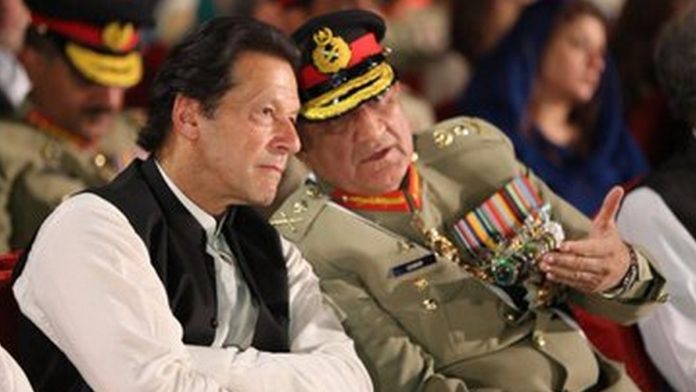
One year into the Covid pandemic, Pakistan has yet to get a grip on the pandemic, or even enforce standard operating procedures (SOPs), and once again the military has been asked to step in to take charge.
At almost 800,000 cases, almost 6000 cases in a single day, and 157 deaths in a single day (the highest since February 2020), the National Command and Operation Centre (NCOC), is going to “allow the army, Frontier Constabulary (FC) and Rangers to assist law enforcement agencies (LEAs) in enforcing standard operating procedures (SOPs) if requested by the provincial governments.” The NCOC also extended the two-day ban on inter-provincial transport till May 17. Additional restrictions include “closure of markets and malls, less essential services, ban on inter-city public transport and shutting down of education institutions.”
After the NCOC meeting, Prime Minister Imran Khan said ““ have asked Pakistan Army to assist the police and law enforcement agencies in enforcing SOPs to check the spread of coronavirus. If Covid-19 cases continued to surge, the government would be compelled to impose lockdown in big cities. I am appealing to you to follow SOPs so that we do not have to take steps which India is taking, like imposing lockdowns. Half of the problem is solved when you wear masks.”
Yet the Prime Minister was reluctant to impose any restrictions and close mosques during Ramzan, unlike other countries including Saudi Arabia. Instead, Khan boasted that “Pakistan was the only country which had kept mosques open last year during the holy month. I was happy with the way our religious scholars and imams informed the people about the precautionary measures.”
Pakistan does not have enough vaccines to vaccinate 210 million people, with the country still waiting for China to send 500 million doses of Sinovac this week.
As former Dawn editor, Abbas Nasir wrote “Surely, the people of Pakistan deserve better. The nuclear-armed state with ballistic missile capability does have the resources to feed the neediest of its citizens, while a lockdown takes the edge off the virus impact, particularly on the dwindling health infrastructure, followed by mass vaccination. It is not resources that are missing, it is leadership. The need for truly representative leadership, sure-footed decision-making is spotlighted even more during crises.”
![]()





